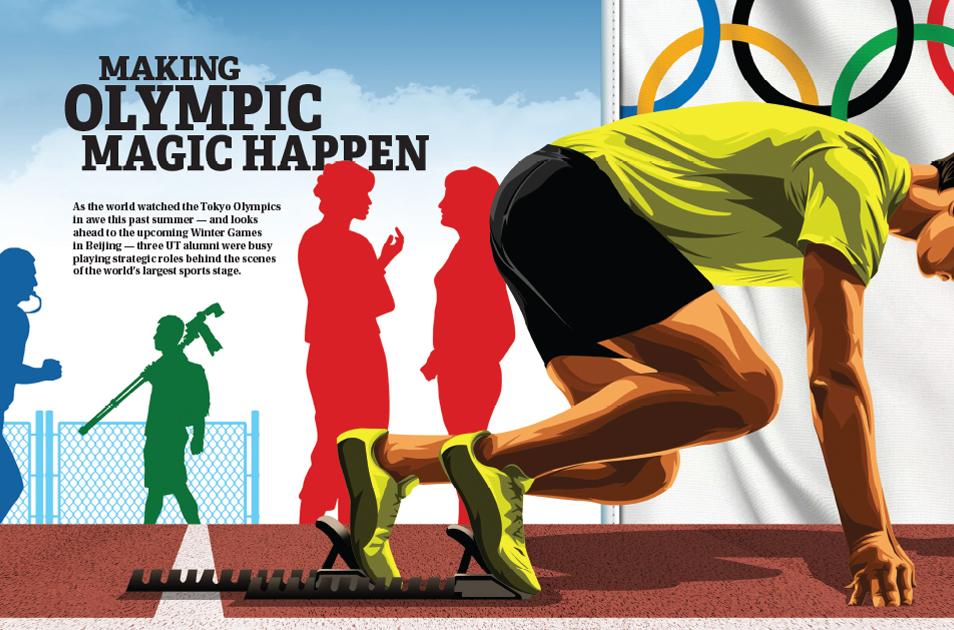Contact us
401 W. Kennedy Blvd.
Tampa, FL 33606-13490
(813) 253-3333
As the world watched the Tokyo Olympics in awe this past summer – and looks ahead to the upcoming Winter Games in Beijing – three UT alumni were busy playing strategic roles behind the scenes of the world’s largest sports stage.

Hassani Watson, M.S. ’17, a former performance coach for the Chinese Olympic Committee, helps an Olympian stretch. Photograph courtesy of Hassani Watson M.S. ’17

"(The mental aspect) is kind of an overlooked part of performance, but it’s highly important.” – Hassani Watson M.S. ’17, a former performance coach for the Chinese Olympic Committee.

Hassani Watson, M.S. ’17, a former performance coach for the Chinese Olympic Committee, helps an Olympian stretch. Photograph courtesy of Hassani Watson M.S. ’17
“The cameras have to be properly aligned to see every swimmer throughout the entire length of the pool, in every moment.” – Phil Murray ’03, Associate Teaching Professor of Chemistry and Assistant Swimming Coach at UT


Phil Murray ’03, second from left, associate teaching professor of chemistry and assistant swimming coach at UT, installs cameras in an Olympic pool in Tokyo. Photo courtesy of Phil Murray ’03

Hana van Loock ’21, a former stringer/interpreter for ZDF, the German public-service television broadcaster, in an Olympic press box. Photo courtesy of Hana van Loock ’21

More UT News